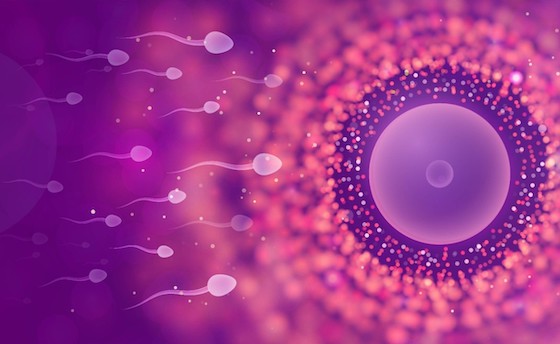Some treatments for cancer can damage the reproductive system and lead to problems with fertility. As a result, women may have trouble bringing a pregnancy to term, or even getting pregnant at all. When it comes to men, his pregnancy plan with his partner may face difficulty to succeed as well. Fertility specialists at RCC Fertility have identified the following clarifications to help inform patients on available guidance and solutions.
Repercussions of radiotherapy and chemotherapy on fertility
Impacts on women:
With regard to radiotherapy, which is significant in gynaecological tumours treatment, the consequences of fertility may depend on the age, the site(s) that received radiation, the dosage and the dose per fraction.
- Premature ovarian insufficiency can be caused by ovarian irradiation and, as a result, a reduction in the fertility period.
- Abdominal-pelvic radiotherapy and total body irradiation have similar effects on the ovaries and fertility.
- Following uterine irradiation, pregnancies are considered at risk and must receive specific care.
- Brachytherapy in vulvar or vaginal tissues can also cause fertility issues.
- Cranial or craniospinal irradiation may cause amenorrhea (one or more missed menstrual periods) and anovulation.
Concerning chemotherapy, several factors can affect the menstrual cycle (i.e., length, type, drug combinations), leading to ovarian insufficiency and fertility challenges. Even though the side effects may vary from woman to woman, the absence of ovulation can give rise to early menopause.
Throughout the chemotherapy treatment, the side effects can affect ovarian function at any given moment and they are variable. Higher cumulative medication doses often lead to greater impact on fertility.
Recovery processes that follow any of these treatments differ from one person to another. However, because the number of viable eggs (ova) decreases with age, ovarian function is less likely to be fully restored in women’s mid-thirties to early forties.
Impacts on men:
Radiotherapy can induce a temporary cessation of spermatogenesis, and ionizing rays reaching the testicles may cause permanent azoospermia.
Male germ cells are very susceptible to certain types of chemotherapeutic agents, so there is a risk of altered spermatogenesis according to the treatment.
Preserving fertility following the treatments
Alternatives for women:
1. In vitro fertilization (IVF) and embryo freezing
For patients who wish to conceive, these methods consist of transferring embryos upon completion of treatments.
It takes the same steps as oocyte vitrification to freeze embryos, nevertheless, once the embryos are extracted, they are fertilised by the partner or donor sperm to create embryos that will be preserved and placed in long-term storage.
2. Oocyte vitrification: conservation of oocytes
As another option, oocyte vitrification allows female gametes (oocytes) preservation and addresses problems in the matter of embryo conservation. For those who might choose to conceive in the future, egg freezing requires approximately two weeks of ovarian stimulation with injections, and a ten-minute procedure using local anaesthesia and sedation to retrieve the eggs from the ovaries through the vaginal wall. The eggs can then be frozen for a long period. This method provides support to patients who wish to preserve their own gametes.
3. Ovarian tissue cryopreservation
This alternative is used in patients who have a good ovarian reserve and are required to undergo highly gonadotoxic treatment. Partial or complete removal of the ovary for prospective use is still considered as an experimental procedure and necessitates laparoscopy (minimally invasive surgery) under general anesthesia. When the patient is ready to conceive, the ovarian tissue is transplanted on or near the ovary and pregnancy can be attempted spontaneously, or by medically assisted reproduction techniques.
Alternatives for men:
An option that is accessible to men is to store their sperm in a bank in case they cannot produce viable spermatozoa during or after treatment. In fact, when receiving cancer treatments, it is stressful for the patients to acknowledge that they may not be able to have children thereafter. Knowing that sperm can be conserved greatly relieves the anxiety generated by this situation. In order to improve sperm viability, patients typically need to provide three semen samples and practice sexual abstinence for two to five days preceding the sample preparation.
At RCC, the cryopreservation centre offers men the opportunity to preserve their sperm for short to long-term periods.
At the present time, despite receiving a cancer diagnosis, it is possible to take action to protect your reproductive capacity and increase your chances to start a family. Pregnancy is no longer ruled out and becomes achievable for our patients thanks to these medical procedures. For more information and advice, contact a fertility specialist or consult our appointment section.










